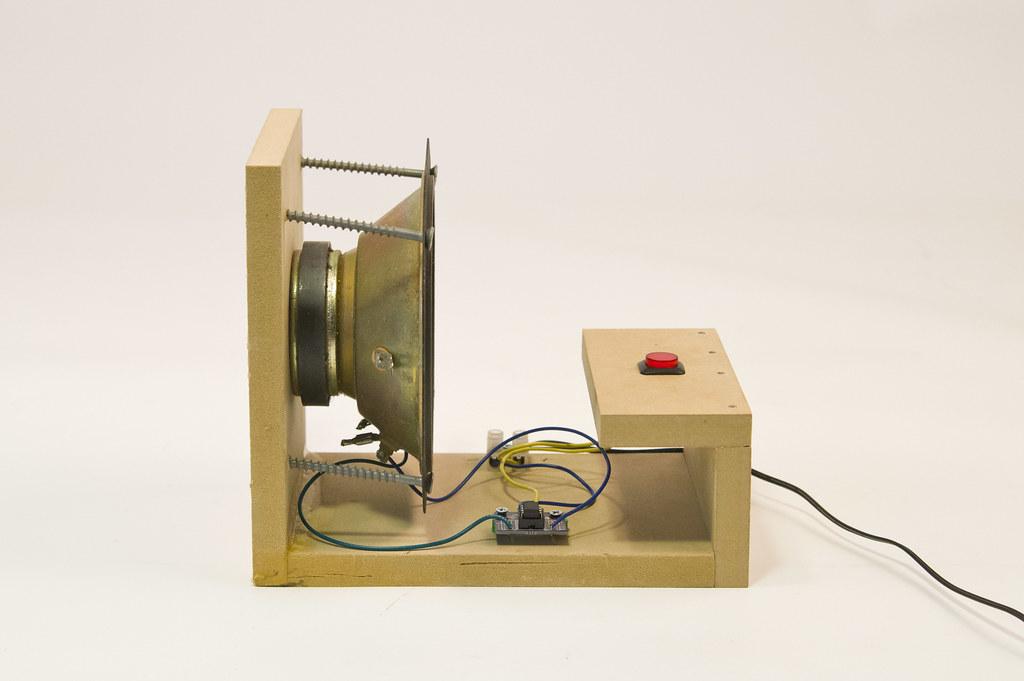In an age where technology evolves with breathtaking speed, the charm of vintage fire alarms stands as a testament to a bygone era of innovation and craftsmanship. These classic devices, often seen as mere relics, tell a story that goes beyond their mechanical simplicity; they embody the spirit of safety and community that has persisted through generations. From the unmistakable clang of a hand-cranked bell to the iconic pull-box that once signaled urgency in bustling towns, vintage fire alarms capture a unique blend of nostalgia and functionality. As we delve into the world of these historical fire safety devices, we invite you to explore their evolution, significance, and the role they continue to play in our collective memory, reminding us that even in the relentless march of progress, some treasures are worth preserving.
Exploring the Timeless Appeal of Vintage Fire Alarms
Vintage fire alarms are more than just functional devices; they represent a fascinating glimpse into our safety history, beautifully merging art with engineering. These historical artifacts were often crafted with intricate designs, showcasing the craftsmanship of their time while providing the essential service of fire detection. Collectors and enthusiasts appreciate their unique aesthetics, which can range from the ornate details of early 20th-century models to the robust simplicity of mid-century designs. Beyond their practical applications, vintage alarms serve as captivating conversation pieces, reflecting the technological evolution in fire safety.
When exploring the world of vintage fire alarms, several key features stand out:License Plate Topper VintageVintage Popcorn PopperVintage Ford Vin Decoder
- Materials: Often made from brass, cast iron, or durable plastics, each material tells a story.
- Design: The artistic choices made in their form and function can reveal societal values of the time.
- Rarity: Many models are no longer produced, making them highly sought after by collectors.
- Historical Significance: Each alarm is a piece of history, connected to specific events or advancements in fire safety.
In the world of collecting, the rarity and condition of these fire alarms can significantly affect their value. Below is a simple overview of some notable models:
| Model | Year | Features | Approx. Value |
|---|---|---|---|
| Model A | 1925 | Brass housing, manual pull | $250 |
| Model B | 1950 | Electric, bell ring | $150 |
| Model C | 1970 | Integrated smoke detection | $300 |
The Craftsmanship Behind Vintage Fire Alarms
is a testament to the ingenuity and meticulous attention to detail of their time. These devices were not simply functional; they were crafted by artisans who understood the importance of both safety and aesthetics. Unlike the mass-produced models of today, each vintage alarm frequently featured unique elements such as ornate casings, intricate metalwork, and distinctive finishes. Many were designed to serve as decorative pieces, seamlessly blending into the architecture of the buildings they protected, making them not just lifesaving devices but also a part of the decor.
The materials used in vintage fire alarms also reflect a commitment to quality and durability. Many of these alarms were made from:
- Cast Iron: Known for its strength and resilience, offering an enduring presence.
- Brass: Valued for its corrosion resistance and distinct patina that developed over time.
- Wood: Often used in the bases and accents, lending warmth and character to the overall design.
To appreciate the distinct craftsmanship, one can compare the specifications of a few classic models as shown below:
| Model | Material | Year of Manufacture |
|---|---|---|
| Model A | Cast Iron | 1925 |
| Model B | Brass | 1930 |
| Model C | Mahogany | 1940 |
Preservation Techniques for Vintage Fire Alarm Collectors
For those who take pride in their collection of vintage fire alarms, the importance of preservation cannot be overstated. A few simple yet effective techniques can drastically extend the lifespan of these fascinating pieces of history. It is crucial to maintain a controlled environment where temperature and humidity levels are monitored, as both can lead to deterioration over time. In addition, ensure that your fire alarms are kept out of direct sunlight, which can cause fading and damage to both the exterior and internal components.
Here are some essential preservation methods to consider for your vintage collection:
- Regular Cleaning: Use a soft, dry cloth to remove dust and debris. Avoid harsh chemicals that can degrade the materials.
- Proper Storage: Store alarms upright in a padded case or on shelves, ensuring they are not stacked on top of one another.
- Check for Maintenance: Regularly inspect wiring, batteries, and mechanisms to ensure functionality and safety.
- Documentation: Keep detailed records of your collection, including models, manufacture dates, and any restoration work.
Additionally, creating a dedicated display area can enhance both visibility and protection. The following table showcases various types of display options, their benefits, and ideal conditions:
| Display Option | Benefits | Ideal Conditions |
|---|---|---|
| Glass Cases | Dust-proof & UV protection | Stable temperature & humidity |
| Shelves with Lighting | Easy visibility & aesthetic appeal | Indirect light & away from moisture |
| Protective Towels | Added cushioning during transport | N/A |
Safety Considerations: Vintage Alarms in Modern Settings
The integration of vintage fire alarms in modern settings presents both aesthetic charm and practical challenges. While these distinctive devices can enhance the ambiance of a space, it is crucial to recognize and address safety concerns associated with their use. Traditional alarms often rely on outdated technologies, which can lead to diminished effectiveness in emergency situations. It’s essential to assess whether the vintage models are functioning correctly. Regular maintenance checks and professional inspections are vital to ensure that these alarms meet current safety standards, particularly in environments with high occupancy or increased fire hazards.
When incorporating vintage fire alarms, homeowners and business operators should consider the following guidelines to enhance safety:
- Retrofitting Options: Explore modern components that can be integrated with vintage designs to improve functionality.
- Regular Testing: Commit to a routine schedule to test the alarms and replace components as necessary.
- Compliance Awareness: Stay informed about local fire safety regulations to ensure compatibility with vintage installations.
- Emergency Protocols: Establish clear evacuation routes and procedures that complement the aesthetic without compromising safety.
| Vintage Fire Alarm Feature | Modern Consideration |
|---|---|
| Mechanical Alarm Bells | Upgrade to electronic sounders for better audibility. |
| Glass Lens Indicator | Implement LED indicators for enhanced visibility. |
| Standalone Operation | Ensure connectivity with contemporary fire safety systems. |
Integrating Vintage Fire Alarms into Contemporary Décor
Incorporating vintage fire alarms into contemporary décor can unveil a striking juxtaposition, breathing character into modern interiors. These nostalgic pieces serve not only as decorative elements but also as conversation starters. For a harmonious blend, consider pairing a vintage fire alarm with sleek, minimalist furnishings. The bold colors and rustic textures of the fire alarm can contrast beautifully with the clean lines of contemporary design, creating a unique focal point in the room.
To successfully integrate these items, keep in mind the following tips:
- Location: Place the alarm as a wall-mounted feature in a hallway or above a fireplace.
- Color Coordination: Choose a fire alarm that complements the room’s color palette.
- Mix & Match: Combine with modern artworks or sculptures to enhance the eclectic vibe.
Additionally, consider creating a display that incorporates these vintage pieces with related decorative elements. A small tabletop display might include:
| Element | Purpose |
|---|---|
| Vintage Fire Alarm | Visual centerpiece and conversation starter |
| Succulent Plants | Adds greenery and softens the aesthetic |
| Old Firefighter Helmets | Enhances the vintage theme |
Finding and Valuing Authentic Vintage Fire Alarms
When embarking on the quest to uncover genuine vintage fire alarms, it’s essential to have a keen eye for detail and a firm understanding of their history. Many collectors and enthusiasts find joy in discovering models from various time periods, making the search a captivating journey. Look for characteristics that signify authenticity, such as:
- Manufacturer Marks: Identifying labels or stamps that indicate the original manufacturer.
- Material Quality: Distinct materials that were standard in the era of the fire alarm’s production.
- Design Features: Unique design elements that distinguish vintage models from modern reproductions.
Once you’ve located a potential vintage fire alarm, it’s crucial to assess its value. Factors that greatly influence worth include its age, condition, rarity, and demand. To aid in your evaluation, consider consulting recent auction prices or vintage alarm catalogs. Here’s a simple overview of how to determine the potential value:
| Factor | Impact on Value |
|---|---|
| Age | Older alarms tend to fetch higher prices. |
| Condition | Mint or restored conditions increase desirability. |
| Rarity | Limited editions or discontinued models are more valuable. |
| Demand | High collector interest can significantly boost prices. |
Q&A
Q&A: Exploring the World of Vintage Fire Alarms
Q: What is a vintage fire alarm, and why is it significant?
A: Vintage fire alarms are historical devices designed to detect smoke or fire and alert occupants of a building. Their significance lies in their role in fire safety history, showcasing the evolution of fire detection technology. These relics highlight the ingenuity of their time and serve as a reminder of the progress made in fire safety protocols.
Q: How can one identify a vintage fire alarm?
A: Identifying a vintage fire alarm involves looking for distinct features such as the design, materials used, and technology. Typically, older models are made from metal or wood and often have a mechanical operation rather than electronic components. The presence of unique branding, a specific model number, or patents can also help determine the age of the device.
Q: What are some common types of vintage fire alarms?
A: Common types include mechanical bells, pull stations, and early electrical alarms. Mechanical bells, often featuring a hand-cranked or gravity-fed mechanism, are among the earliest. Pull stations consist of a simple “pull down” lever that activates an alarm. Additionally, early electrical models might showcase distinct glass globes or metal casings, often resembling works of art from their era.
Q: Are vintage fire alarms still functional today?
A: While some vintage fire alarms can still be functional, many may not meet current safety standards. It’s important to understand that even if they can sound an alarm, their reliability in detecting fires appropriately may be compromised due to outdated technology. For collectors, they often serve more as historical artifacts rather than functional devices.
Q: What should collectors consider when acquiring a vintage fire alarm?
A: Collectors should consider the alarm’s condition, rarity, historical significance, and provenance. Researching the specific brand and model can add context to its value, while provenance — such as previous ownership or usage in notable buildings — can enhance its collectibility. Also, checking for original parts and documentation can significantly impact its worth.
Q: How can one properly care for and preserve a vintage fire alarm?
A: Proper care begins with ensuring the alarm is kept in a stable environment, away from extreme temperatures and humidity. Cleaning gently with a soft cloth and avoiding harsh chemicals is recommended to preserve the finish. Regularly inspecting for any signs of wear or damage can help maintain its integrity. For valuable pieces, consulting with a restoration expert is advisable.
Q: Are there any common myths about vintage fire alarms?
A: Yes, one common myth is that all vintage fire alarms are unsafe or ineffective. While many have outdated technology, numerous vintage models were built robustly and can still be valuable for educational purposes or historical displays. Additionally, there’s a misconception that vintage fire alarms are purely decorative; in fact, many enthusiasts appreciate their functional artistry and craftsmanship.
Q: Where can one find vintage fire alarms for purchase?
A: Vintage fire alarms can often be found at auctions, estate sales, specialty antique shops, and online marketplaces such as eBay or dedicated collectibles websites. Fire safety shows or collector conventions may also host vendors specializing in these unique pieces, offering a community for enthusiasts and collectors alike.
Q: Why should individuals or institutions consider incorporating vintage fire alarms in their decor or exhibits?
A: Incorporating vintage fire alarms adds an intriguing historical element to decor or exhibits. They provide a tangible connection to the past, sparking conversations about fire safety evolution and the significance of technology in protecting lives. Furthermore, their unique designs often enhance the aesthetic appeal of spaces, merging function and history beautifully.
In Summary
In a world increasingly dominated by sleek, modern technology, vintage fire alarms stand as quiet sentinels of our past. They remind us of a time when craftsmanship and artistry went hand in hand with safety measures, evolving from simple bells to complex systems that secured the places we call home. As we explore the significance of these historical devices, we uncover not only their mechanical ingenuity but also the stories intertwined with the lives they once protected.
Whether you are a collector, a history enthusiast, or simply someone intrigued by the charm of yesteryear, vintage fire alarms invite us to reflect on our relationship with safety and technology. They serve as a testament to human ingenuity and the relentless pursuit of protection against the unpredictable forces of nature. As you continue your journey through the realms of vintage collecting or fire safety, let these relics inspire a deeper appreciation for the delicate balance between progress and preservation. So, the next time you hear the echoing chime of an old fire alarm, remember that within its rings lies a rich history waiting to be explored.


